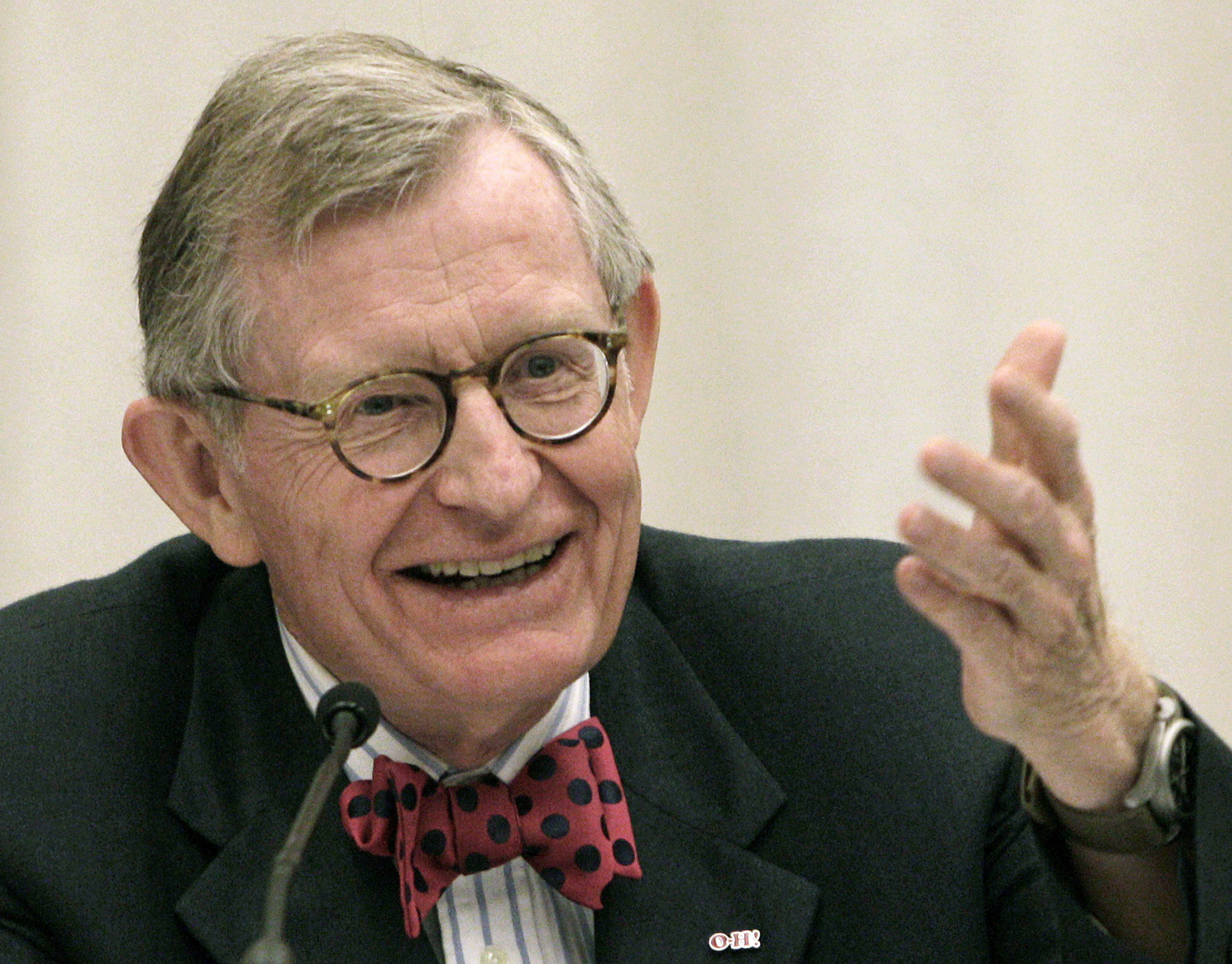
Faculty: Gee plan will harm university
Nearly 800 faculty members at West Virginia University expressed no confidence in President Gordon Gee during a special meeting Wednesday as tension over a sweeping plan of academic cuts simmers on campus.
A majority of faculty members at the meeting also want to freeze the flagship school’s academic transformation — a term WVU officials have used to describe the changes they are implementing during financial hardship.
Faced with a $45 million deficit, WVU leaders in August recommended 32 program cuts and 169 faculty layoffs. If the proposed cuts come to fruition, WVU students will no longer be able to major in world languages or receive a doctorate degree in mathematics.
Wednesday’s faculty expression is symbolic in nature. Mr. Gee cannot be removed from his position by the faculty, nor can the faculty freeze the academic transformation process that was initiated by WVU’s board of governors.
But the votes do gauge the temperature of professors’ feelings toward university leaders and their handling of hardships. Over 900 faculty members attended the special meeting. WVU employs 2,478 full-time faculty members.
In the resolution on no confidence in Mr. Gee’s leadership, faculty members lambasted his management of university finances, communication and vision for the public school’s future.
“The success of any academic institution relies heavily on open dialogue and collaboration, which seem to have been neglected under President Gee’s leadership,” Tina Faber, a field placement specialist in WVU’s School of Social Work, said during the meeting. “We demand transparency, accountability and a renewed commitment to the values that make our institution great.”
Mr. Gee, who attended the special meeting, defended his record prior to the vote. He also pointed to university growth since he began his second term as WVU’s president almost a decade ago: WVU has bolstered its medical center, more student organizations are on campus, and the university received classification as an R1 research institution, he argued. Mr. Gee led WVU between 1981 and 1985 and returned to the school in 2014. He plans to retire in 2025.
“I have great faith in this university, I have great faith in all of you and I think that in the end we will be a better institution,” Mr. Gee said. “We will proceed forward with what we’re doing right now, and I think we’ll strengthen our institution by doing so.”
Yet Mr. Gee’s plea wasn’t enough to restore the confidence of voting faculty members. It also didn’t change their opinions on academic transformation, which 747 faculty members voted to freeze.
The faculty’s resolution claims the transformation process has been muddied by dishonesty. And David Hoinski, a WVU philosophy professor who spoke during the meeting, said the plan violates WVU’s land-grant mission.
“This has national and international implications,” Mr. Hoinski said. “We need to fight this all the way. Instead of transforming the university by shrinking it, we should be looking to grow it.”
WVU’s board of governors will vote on the proposed cuts Sept. 15.
School officials have attributed the deficit to declining enrollment and higher employee costs. Between fall 2013 and fall 2022, the Morgantown campus lost about 16% of its student body, to 24,741 students from 29,466. Budget concerns became heightened this spring when school officials learned that an increase in insurance premiums for public employees would inflate university costs by $10 million.
And, like universities across the Northeast, WVU faces inflationary troubles, enduring pandemic problems, a drop in the college-age population and dwindling trust in higher education.
